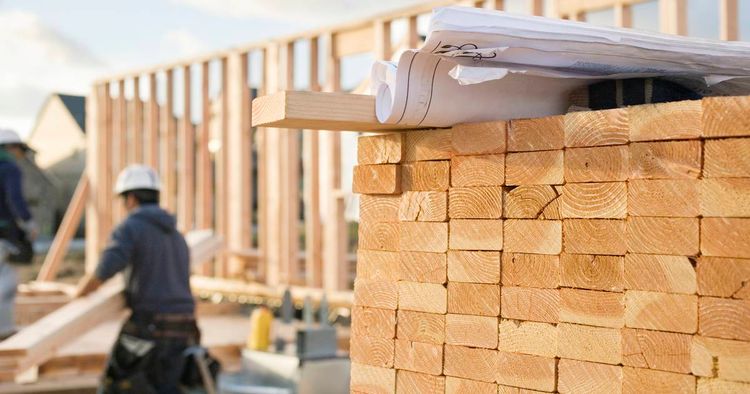Recovery in construction stalls in July as inflation picks up again

In July, it seemed like the progress in the construction industry came to a halt as there was a decline in new orders and an increase in inflationary pressures. This has become a new obstacle for the Government in achieving their housing targets.
The most recent Construction Purchasing Managers Index (PMI) released by BNP Paribas Real Estate Ireland indicated a fresh decrease in construction activity in July, after experiencing growth in June. This decline can be attributed to a weakening demand.
The decrease was seen in all three sectors that were monitored - housing, commercial, and civil engineering. The report from the company also emphasized a quickening of inflation in input costs.
"The increase in inflation for input costs goes against the recent downward trend that started in April 2022 and contradicts the latest data from the wholesale price index," stated John McCartney, who serves as the director and head of research for BNP Paribas Real Estate Ireland.
"It's not yet clear if the more current PMI is detecting initial indications of resurging inflationary pressures or if this is merely a temporary occurrence," he stated.
During the first quarter, there was a decline in the number of housing units being built in Dublin.
[ Skilled professional specializing in contentious construction disagreements appointed to the national children's hospital board ]
The most recent primary indicator of the company, which gauges the level of construction actions, experienced a decline to 45.6 in July from 50.4 in June, steadily falling beneath the crucial 50 mark that denotes a decline in activity.
According to BNP Paribas, the latest decrease in output is the most significant one so far this year. In fact, this decline marks the ninth out of the past 10 survey periods where output has decreased. The cause for this reduction is attributed to a renewed weakening of customer demand, according to the respondents.
The article stated that the findings from the reading aligned with the information gathered on recent orders, indicating a decrease for the first time in half a year.
According to the report, decreased customer trust and the resulting delays in project approvals were some of the reasons behind the decline in new business. This decrease in activity is worrisome for the Government's Housing for All plan, which intends to provide an extra 300,000 housing units by 2030, or about 33,000 per year. The Government's goal for house construction in 2023 is 29,000 units, a level that experts believe can be reached as most of the units are already in progress. However, the slowdown in activity raises concerns about meeting the target after 2023.
However, despite the decrease in workloads, construction companies in this area continued to grow their workforce, with employment rising for the seventh consecutive month.
The government contemplates reducing VAT on home-building in order to encourage and boost the construction industry.
[ I've grown tired of the constant sounds of construction in my neighborhood. Are there any possible solutions to this issue? ]
Mr McCartney described the July PMI as a combination of positive and negative outcomes.
"He mentioned that the decrease in construction activity witnessed last year gradually became less severe in the first half of 2023, reaching its peak with a positive growth in June."
"In this situation, and considering the ongoing increase in the commencement of housing projects, the unexpected decline in July was surprising," he stated.
"Looking at the bright side, construction companies noted a rise in job opportunities for the seventh consecutive month, and for the 10th time in the past year," he mentioned.
"This indicates that construction companies are still able to hire employees despite the limited job market, and implies a deep-seated optimism about what lies ahead. This positive outlook was also reflected in the indicator for future expectations, which remains upbeat and displays a slight rise in sector optimism from June to July," stated Mr. McCartney.

































































